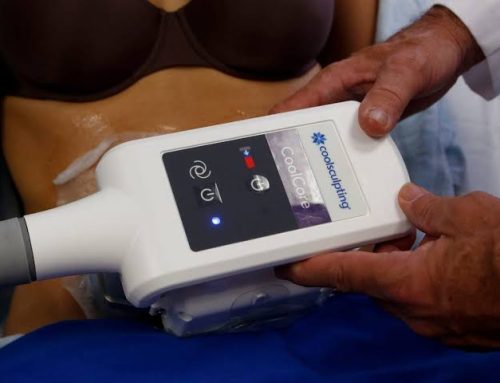Introduction
Bariatric surgery is a life-changing journey that involves significant dietary adjustments. After your surgery, a well-structured eating plan is crucial for a successful and healthy outcome. Each phase of your post-bariatric surgery diet is carefully designed to support your weight loss, provide essential nutrients, and ensure your body heals properly. In this article, we will guide you through the steps to start eating after bariatric surgery, emphasizing the importance of vitamins, protein, minerals, hydration, and the timeline for each phase.
Phase 1: Week 1 -2
After your bariatric surgery, you will begin with a clear liquid diet. This phase typically lasts for the first two weeks. The purpose of this phase is to allow your stomach to heal while providing essential hydration.
- Clear Fluids: During this phase, focus on clear liquids such as water, black tea or coffee, and diluted, no-added-sugar cordial or squash.
- Stay Hydrated: It’s crucial to drink about 2 tablespoons of clear fluids every hour. But remember, once you feel full, stop drinking to avoid discomfort or vomiting.

Phase 2: Week 3 – 4
During weeks 3 and 4 after surgery, you’ll transition to a puréed diet. The primary goal of this phase is to introduce more nutrients and calories while maintaining a texture that is gentle on your healing stomach.
- Texture Matters: Foods should have a texture similar to runny yogurt, with no lumps. You’ll need to blend your meals until they are completely smooth.
- Small, Frequent Meals: Consume 4 to 6 small puréed meals each day, with portions ranging from 2 to 3 tablespoons, gradually increasing to 4 to 6 tablespoons.
Phase 3: Month 2 – 3
The soft diet phase occurs during the second and third months following surgery. Your focus here is on moving from purées to regular-textured foods.
- Texture Transition: Foods should now be soft enough to fall apart when pressed with a fork or spoon, similar to the purée phase but without the need for blending.
- Balanced Meals: Begin incorporating balanced meals according to the bariatric plate model, including protein, vegetables or fruit, and carbohydrates.
- Regular Meal Patterns: Adopt a regular meal pattern, avoid grazing, and continue to eat small, slow, and well-chewed mouthfuls.
Phase 4: Month 4 – lifelong
From month 4 onward, you’re ready for your long-term eating plan. In this phase, you’ll focus on maintaining a healthy, balanced diet that is low in fat and sugar.
- Nutritious Eating: Embrace a nutritious, balanced diet rich in lean protein and fiber.
- Portion Control: Remember that you’re not just eating small amounts to reduce calories; your goal is to maintain your health and achieve a lifelong, healthy weight.

Why is it important to take vitamins after Bariatric Surgery?
Throughout your post-bariatric surgery journey, vitamins, protein, and minerals are essential to support your health and well-being. Bariatric patients may require supplements to prevent deficiencies, and it’s important to follow your healthcare provider’s recommendations in this regard.

What vitamins should you take after Bariatric Surgery?
1. Vitamin B1 (Thiamin)
Vitamin B1 plays an important role in converting carbohydrates into energy and supporting cell growth. A deficiency can lead to neurological issues that may become permanent if not addressed promptly. After surgery, the body requires at least 12mg of thiamin, which is ten times more than pre-surgery requirements.
2. Vitamin B12
Vitamin B12 is vital for maintaining healthy blood and nerve cells. Absorption of this nutrient significantly decreases after surgery, requiring higher doses. Deficiency may result in tingling, numbness, fatigue, and confusion.
3. Iron
Iron is essential for hemoglobin and myoglobin, which transport oxygen to tissues. Iron deficiency can lead to anemia, characterized by symptoms like fatigue, hair loss, brittle nails, memory problems, and susceptibility to infections.
4. Folate
Folate is crucial for red blood cell formation and overall cell growth and function. Deficiency may manifest alongside other symptoms, including weakness, fatigue, irritability, headaches, and shortness of breath.
5. Calcium
Calcium is a fundamental mineral that contributes to bone and teeth structure, as well as various physiological functions. Symptoms of calcium deficiency include numbness, tingling, muscle cramps, and convulsions.
6. Vitamin D
Vitamin D is vital for strong bones and teeth, as it aids calcium absorption. A deficiency can lead to osteoporosis, characterized by soft and brittle bones, a risk that increases after bariatric surgery.
7. Vitamin A
Vitamin A is essential for vision, reproduction, immunity, and cellular communication. Deficiency can lead to xerophthalmia, which dries out the eyes and may cause night blindness.
8. Vitamin E
Vitamin E acts as an antioxidant, supporting immunity and organ function. A deficiency can lead to nerve and muscle damage, causing loss of sensation in the limbs, muscle weakness, and vision issues.
9. Vitamin K
Vitamin K plays a role in blood clotting, bone metabolism, and blood calcium regulation. Deficiency can impair bone health and increase the risk of excessive bleeding.
10. Zinc
Zinc is essential for cell growth, DNA synthesis, and protein production. It also plays a role in reproduction, immune function, and wound repair. Zinc deficiency can result in taste changes, decreased appetite, immune system impairment, hair loss, and concentration difficulties.
11. Copper
Copper is involved in various essential functions within the body, including energy production and immune system support. Copper deficiency is rare but can lead to extreme fatigue, connective tissue disorders, and immune system dysfunction.

What supplements should I take after Bariatric Surgery?
Supplementation becomes a crucial part of your daily routine after bariatric surgery. The best approach depends on your individual needs, which are influenced by factors such as age, sex, nutrition history, and the type of procedure you underwent. Here are two options:
Option 1: Bariatric Multivitamin + Calcium
- A bariatric multivitamin streamlines your daily supplementation by providing all necessary nutrients in appropriate quantities.
- Calcium chews with vitamin D are recommended, as calcium absorption is limited. These can be purchased without a prescription online or in-store.
Option 2: Over-the-Counter (OTC) Supplements
- Over-the-counter vitamin and mineral supplements can be purchased without a prescription.
- This approach may include a double-dose multivitamin, vitamin B12, vitamin B1, calcium with vitamin D, and potentially extra iron.
Can I take gummy vitamins after Bariatric Surgery?
Gummy-textured multivitamins are not suitable for post-bariatric surgery needs. They often lack the appropriate vitamin and mineral levels required for your dietary adjustments. It’s crucial to choose supplements designed specifically for bariatric surgery patients to avoid potential deficiencies.

Conclusion
Starting to eat after bariatric surgery involves a well-structured plan that prioritizes your healing and long-term well-being. The gradual transition from clear liquids to regular-textured foods ensures your body adjusts and accommodates your new digestive capacity. And taking vitamins and minerals after bariatric surgery is paramount to maintaining good health and ensuring successful weight loss. The altered absorption capacity of your body necessitates tailored supplementation. Always consult with your healthcare provider or a registered dietitian to determine your specific nutrient needs and choose the right supplementation approach. Addressing nutrient deficiencies is key to making your bariatric surgery journey a safe and effective one.
If you have any questions or concerns about your post-bariatric diet, consult with your healthcare provider for personalized guidance and support.
Disclaimer: The content on this blog is intended for general informational purposes only. It is not a substitute for professional medical advice, diagnosis, or treatment. Always consult qualified healthcare providers for personalized advice. Information regarding plastic surgery, dental treatment, hair transplant, and other medical procedures is educational and not a guarantee of results. We do not assume liability for actions taken based on blog content. Medical knowledge evolves; verify information and consult professionals. External links do not imply endorsement. By using this blog, you agree to these terms.










